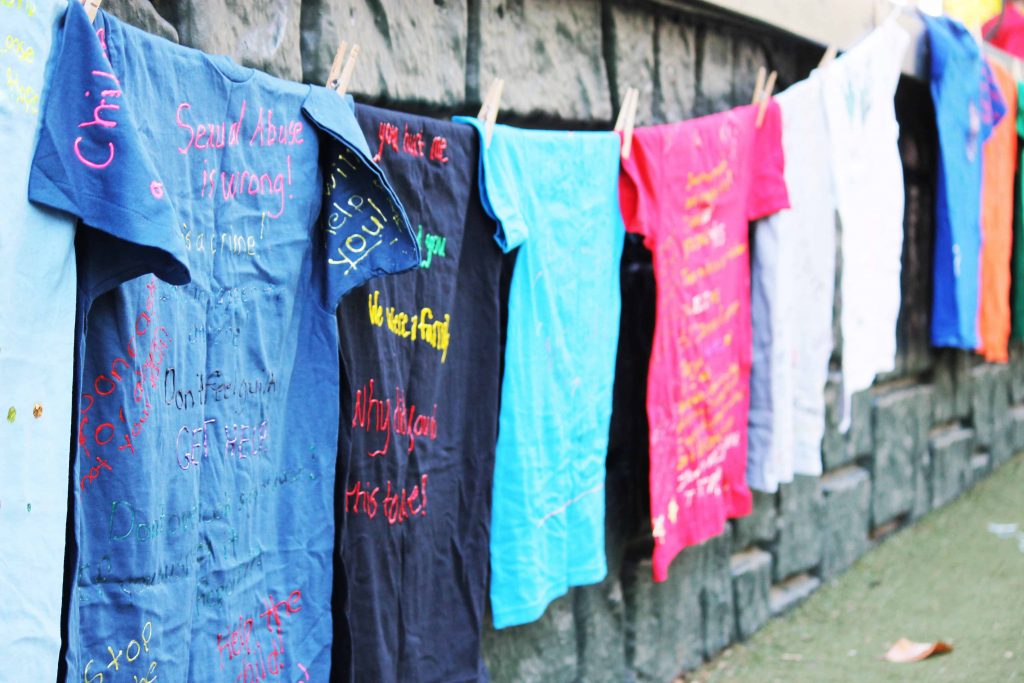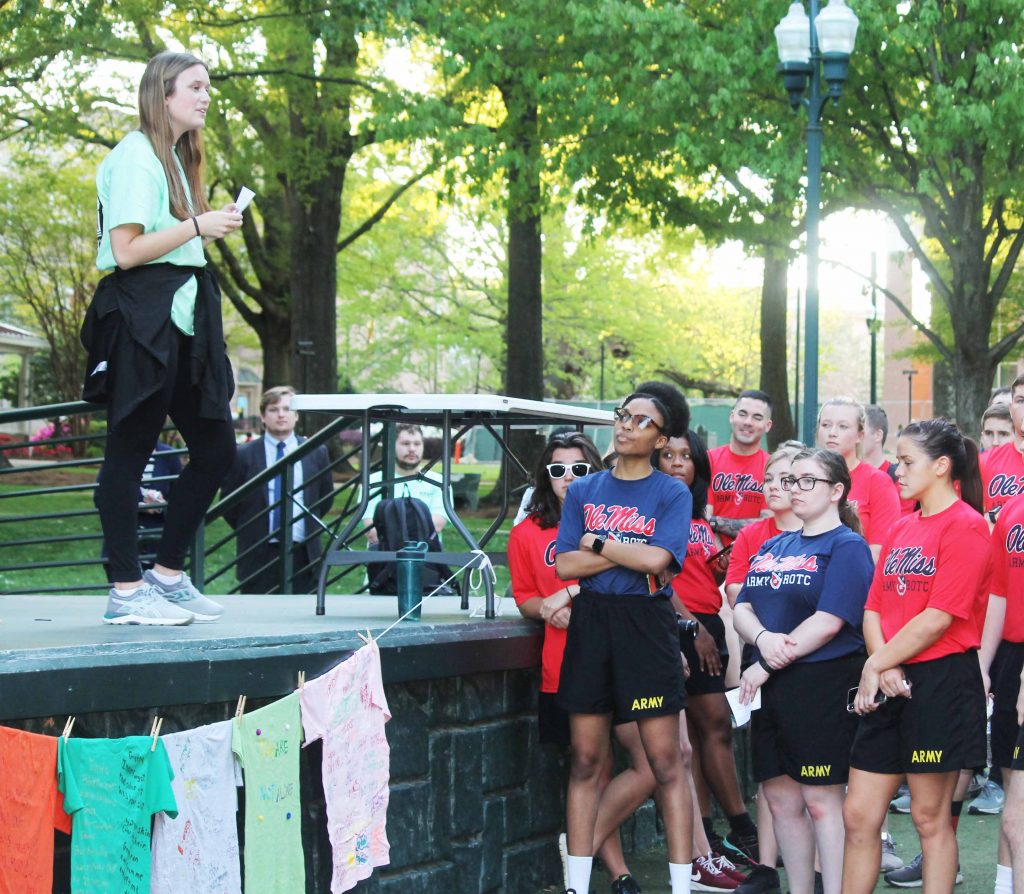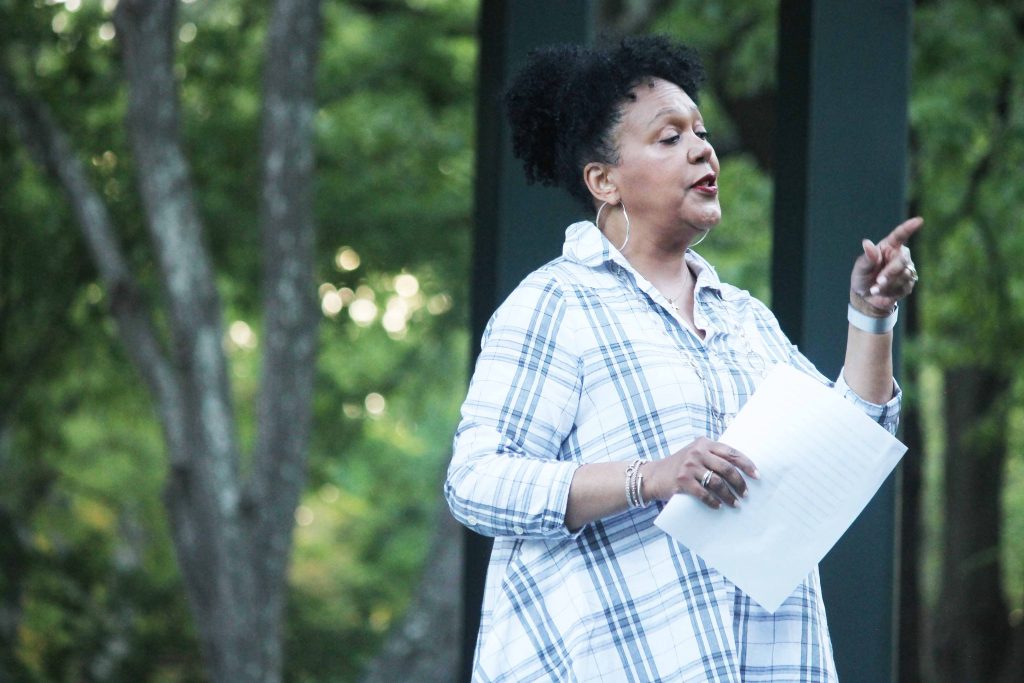Many administrators and student leaders took part in Rebels Against Sexual Assault’s annual Take Back the Night event to raise awareness for survivors of sexual assault on Tuesday night in the Grove.
Vice Chancellor of Student Affairs Brandi Hephner LaBanc said that Take Back the Night is a very important night for RASA and sexual assault survivors.
“Take Back the Night is all about three things: It’s about talking about and keeping the community safe, it’s about making folks aware of what it means to be in a respectful and healthy relationship, and last of all, it’s about awareness,” LaBanc said.

Take Back the Night is a volunteer organization that speaks out against sexual assault and domestic violence. More than 36 countries and 800 communities around the world hold Take Back the Night events every year.
Outgoing Associated Student Body President Elam Miller spoke at the event and said he is committed to listening to the voices of survivors as an advocate and a student leader on campus.
“Through your activism, survivors find not merely comfort and understanding, which is vital to the healing process, but also an avenue through which their voices can be heard and effect change,” Miller said.
Shelly Berryhill, a junior theatre major, said she is survivor of sexual assault, and she believed that Take Back the Night would benefit her by enabling her to be around people who may have experienced something similar and who could provide emotional support.
“I think (Take Back the Night) helps give people the encouragement they need to not only protect themselves but, if they are survivors, to kind of give them the (courage) they need everyday to know that they’re not alone and to get through things that they’ve experienced,” Berryhill said.

University Counseling Center counselor Laura Schulenberg said that the counseling center in Lester Hall offers therapy and welcomes anyone who wants counseling.
“We offer individual therapy to any student who’s enrolled at the university, undergraduate or graduate,” Schulenberg said. “We also have a variety of groups that we have each week.”
University Police Department Captain Jesse Richards was also at the event and said that UPD supports Take Back the Night.
“(Take Back the Night) brings about awareness to the problem of sexual assault,” Richards said. “This event is not just here, it’s nationwide, and so the awareness has been great, not just this year, but the years in the past as well.”
Bachelor of Social Work Program Director Desiree Stepteau-Watson delivered the keynote address and talked about the idea that rape culture begins as early as childhood.

“Girls are taught to sit with their legs closed, to cross their legs,” Stepteau-Watson said. “High school dress codes reinforced these ideas. Girls can’t wear leggings in many high schools. They can’t wear tops with their shoulders exposed, as if boys can’t handle seeing shoulders.”
Junior Chinese and international studies major Gabe Menchaca went to Take Back the Night with members of the military branch of ROTC, of which he is a member. Menchaca said he thinks sexual violence is a large issue for both genders, but he feels that women are able to express their emotions more openly about it.
“Some (sexual assault survivors) are male, and these male victims, I feel like, personally, it’s harder for them to speak on it for some reason,” Menchaca said. “I feel like you have to hold it down. As a guy, you’re supposed to hold your emotions in and not really speak on it as much.”
RASA President Colleen Fay said Take Back the Night is an event that brings people on the Ole Miss campus and the Oxford community together to raise awareness about sexual violence and positively impact campus.
“I’ve been on the campus since fall of 2016, and I feel like I’ve seen a change on the campus environment surrounding this issue, and the conversations and education around it has increased,” Fay said.
Title IX Coordinator Honey Ussery said the Title IX office on campus is a resource for all students.
“I know that we get a lot of bad publicity, but we’re actually here for you—we’re here for all of our students,” Ussery said. “We want them to know that they have the option to come to us.”
Berryhill said she thinks society still believes that sexual assault is a taboo subject.

“I think that encouraging people to speak up and let others know that (sexual assault is) not okay is a message that needs to be clear,” Berryhill said.
Fay said that she feels that the climate and conversation about sexual violence and assault is shifting in a negative direction, but she believes that RASA and other organizations are working hard to change that.
“We still have a lot of work to do, but I think we’re moving in the right direction,” Fay said.






